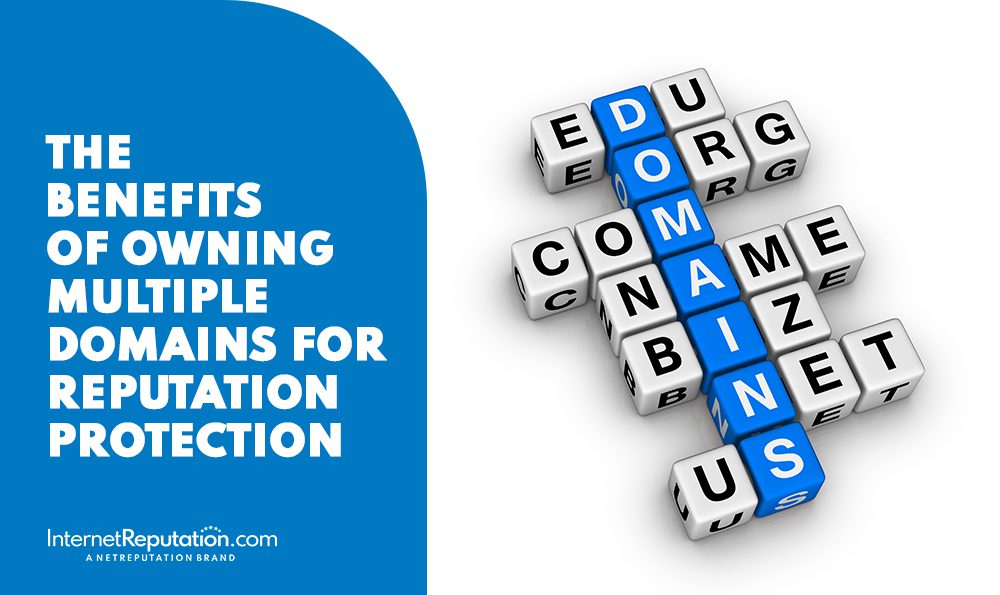Why Online Reputation Management is Essential for Healthcare Providers

As a healthcare provider, your online reputation is essential to the success of your practice. It’s no secret that the digital age has revolutionized how people access information and make decisions about their healthcare needs. That’s why healthcare providers need to take control of their online presence to ensure that patients have access to accurate and up-to-date information about their practices. This article will explore why online reputation management is so important for healthcare providers and what steps they can take to ensure their practice is properly represented online.
The internet can be both a blessing and a curse for healthcare providers. On the one hand, it provides potential patients with easy access to information about doctors, hospitals, and other healthcare facilities. However, it also means that negative reviews or inaccurate information can spread quickly and have a damaging effect on your practice’s reputation. This is why healthcare providers need to take proactive steps to manage their online presence.
Online reputation management isn’t just about responding to negative reviews; it’s also about actively promoting positive feedback and staying on top of any changes in the industry that could affect your practice. Doing so not only helps you protect your brand but also ensures that potential patients are getting accurate information about you and your services before making any decisions about their healthcare needs.
In this article, we’ll explore why online reputation management is so important for healthcare providers and what steps they can take to stay ahead of the game. By InternetReputation!
About us
When working with us, you can expect that we will prioritize the importance of your online reputation in today’s digital age. We understand that a positive online image can enhance your credibility, unlock job opportunities, and help you achieve your goals. However, creating and maintaining a positive reputation can be challenging in the constantly evolving online environment.
As Internet Reputation, we have a skilled team of SEO, public relations, content strategy, and IT specialists, along with proven tools and techniques. We are well-equipped to handle any issue that may negatively impact your online reputation, such as bad press, negative reviews, cyberbullying, or social media criticism. Our objective is to assist you in building a strong reputation and presenting yourself positively online.
Our services among many others
-Local SEO
–And more, visit our site now! (https://www.internetreputation.com/)!
What Is Reputation Management?
Reputation management is the practice of monitoring and influencing an individual’s or organization’s reputation. It has become increasingly important for healthcare providers, who must maintain a positive public image to attract and retain patients. Reputation management involves both proactive and reactive strategies that help shape how customers perceive a business, its services, and its products.
Online reputation management (ORM) focuses on the control of online search results. With ORM, healthcare providers can actively monitor what people are saying about them online and take steps to improve their overall image. They can use methods such as SEO optimization, content marketing, social media campaigns, and link building to ensure that their website appears higher in search engine rankings. This helps potential patients find them more easily when searching for a provider online.
ORM also helps healthcare providers respond quickly to any negative comments or feedback they receive online. By addressing these issues before they have time to spread further on the internet, they can protect their reputation from damage while also demonstrating their dedication to patient satisfaction.
The Benefits Of Reputation Management For Healthcare Providers
Now that we understand the importance of reputation management, let’s look at the benefits it can provide for healthcare providers. As a healthcare provider, having an online presence is essential to stay competitive in today’s market and gaining visibility from potential patients. By managing your online reputation, you can ensure that potential customers have access to accurate and up-to-date information about your practice.
Reputation management can also help build trust with your current patients as well as potential ones. By responding to patient feedback on social media and other websites, you can show that you care about their opinions and take measures to improve their experience. This will help increase patient satisfaction with your services and make them more likely to recommend your practice to others.
It is also important to monitor the online reviews of your practice on websites, such as Google Reviews. Negative reviews can be damaging to your business’s reputation, but if dealt with promptly and professionally they can be used as an opportunity to demonstrate great customer service and turn a bad situation into a positive one. Monitoring reviews also allow you to identify areas where improvements need to be made to better serve your patients. With effective online reputation management, healthcare providers can create a strong online presence that reflects positively on their business and enhances patient loyalty.
Online Reviews And Ratings
Online reviews and ratings are essential for healthcare providers. These reviews are available on various websites and can be accessed by prospective patients. Patients often rely on these reviews to decide which healthcare provider they should visit. This means that it is important for healthcare providers to manage their online reputation, as poor ratings could drive away potential customers.
Managing online reviews and ratings can be done in a few different ways. Healthcare providers can respond to negative reviews, addressing any concerns or complaints that have been raised by the patient. This will show potential customers that the provider is attentive and willing to help out those who have had a bad experience. Providers can also encourage their satisfied patients to leave positive reviews, giving potential customers an insight into the quality of care they provide.
Online reputation management is an important part of running a successful healthcare business, as it allows providers to promote their practice and attract new patients. By managing reviews and ratings effectively, healthcare providers can ensure that their services remain in high demand.
Monitoring Your Reputation Online
Monitoring your online reputation is an essential part of protecting your healthcare provider business. Knowing what is being said about you and your services online can allow you to respond quickly and appropriately to any negative feedback or inaccurate information. There are a few steps you should take to ensure that your online reputation is well-managed.
First, it’s important to monitor the major social media platforms like Facebook, Twitter, Instagram, and LinkedIn. These are all great places for potential customers to learn more about your services, so it’s important to stay on top of any comments or reviews that may be posted about you there. Additionally, setting up Google Alerts for yourself or your business name will help keep track of any content that mentions you online.
Finally, be proactive in responding to customer reviews or inquiries. Responding promptly shows potential customers that you care about their opinions and value them as a customer. It also allows you to address any issues they may have with your services before they become larger problems. Being proactive in managing your online reputation can help maintain a positive presence for your healthcare provider business and bring in new customers.
How To Respond To Negative Reviews & Ratings
Now that healthcare providers have taken the necessary steps to monitor their online reputation, it is important to know how to respond to any negative reviews or ratings. When responding, it is important to remain professional and not become defensive. It is also essential to keep in mind that all responses should be timely, accurate, and respectful.
The first step is to assess the situation thoroughly and determine if a response needs to be made at all. If the situation requires a response, then healthcare providers should take the time to address each issue raised by the person who left the comment or rating in question. Healthcare providers should also be sure to provide accurate information when addressing any issues. This will help build trust with those who read the response and ensure that patients get accurate healthcare advice from their providers.
In addition, healthcare providers should make sure they thank the person for taking the time to leave feedback about their services. This shows that their opinion matters and will help foster positive relationships with current and potential patients. Providers can also offer additional resources such as educational materials or contact information for follow-up questions or concerns. Taking these steps will demonstrate that they are listening and care about providing quality healthcare services.
Strategies For Maintaining A Positive Online Presence
Maintaining a positive online presence is essential for healthcare providers. Several strategies can be employed to ensure that the provider’s reputation remains intact. First, it is important to be proactive and actively monitor what is being said about the provider online. Responding to any negative feedback promptly can help to diffuse the situation and maintain a good reputation. Second, it is essential to stay engaged on social media platforms, as this allows healthcare providers to interact with patients and other stakeholders regularly. This helps build relationships, create trust, and ultimately enhance the provider’s overall reputation. Thirdly, utilizing traditional marketing tactics such as press releases and public relations campaigns can also help establish a positive image of the provider in the community. By incorporating these strategies into their daily operations, healthcare providers can ensure that their online presence remains positive and professional.
The Role Of Social Media In Reputation Management
Moving on from strategies for maintaining a positive online presence, the role of social media in reputation management is essential for healthcare providers. Social media is one of the most powerful communication tools used by patients and families to voice their opinions, share experiences, and review providers. As such, healthcare providers must be prepared to use it as a tool to build trust and credibility with their target audience.
The first step in using social media effectively is to create and maintain an up-to-date profile that accurately reflects the provider’s services and values. This includes keeping content fresh, responding quickly to inquiries and complaints, and engaging with followers in meaningful conversations. By taking these steps, healthcare providers can demonstrate that they are active listeners who are committed to providing quality care.
In addition to providing a platform for communication with current and potential patients, social media also presents an opportunity for healthcare providers to showcase their expertise. Providers can create informative blog posts related to common health issues or highlight community events relevant to their field. Doing so helps establish them as thought leaders in the industry which enhance their credibility among current and prospective patients alike.
SEO Tactics For Improving Search Results
Search engine optimization (SEO) is an important tool for any healthcare provider looking to improve their online reputation. By optimizing content for search engines, healthcare providers can ensure that their website and social media accounts rank higher in search results. This will increase the visibility of their brand and boost the quality of their online reputation.
One way to optimize content for SEO is by using targeted keywords throughout the website or blog post. This helps search engines understand what the page is about and why it should be ranked higher in search results. It’s also important to use these keywords naturally within sentences, as stuffing them into content can hurt SEO performance. Additionally, regularly updating content with fresh text, images or videos will also help boost SEO rankings.
The use of backlinks is another key factor when it comes to SEO success. Backlinks are links from other websites that point back to your website, which help signal relevancy and importance to search engines like Google. Building relationships with other industry professionals and influencers can be a great way to acquire high-quality backlinks from reliable websites. Ultimately, this will help improve your website’s ranking in organic search results and enhance your online reputation overall.
Conclusion
In conclusion, online reputation management is an essential practice for healthcare providers looking to thrive in today’s digital age. By taking proactive steps to manage their online presence, responding to patient feedback, and utilizing SEO tactics, healthcare providers can create a strong online presence that reflects positively on their business and enhances patient loyalty.
Take the time to read our different articles!
–Social Media Manager: Do I Need One?
–Google Autocomplete? How Does Predictive Search in Google’s Search Engine Affect Your Reputation?
–Reputation Score: What Is It And Why Does It Matter?
–How to Clean Up Your Online Reputation
–When to Hire a Reputation Management Expert
-And more visit our blog!



